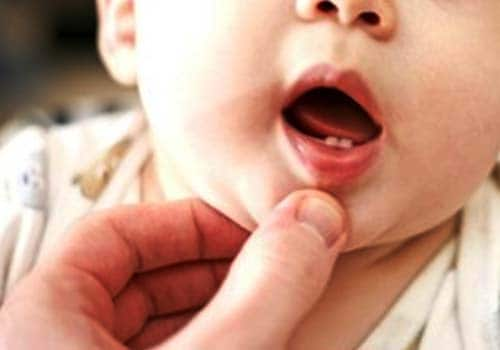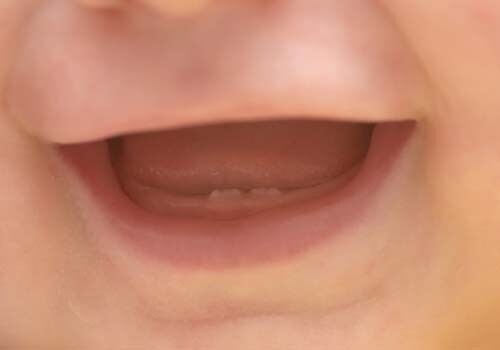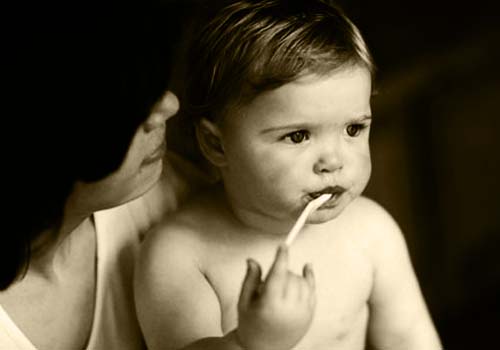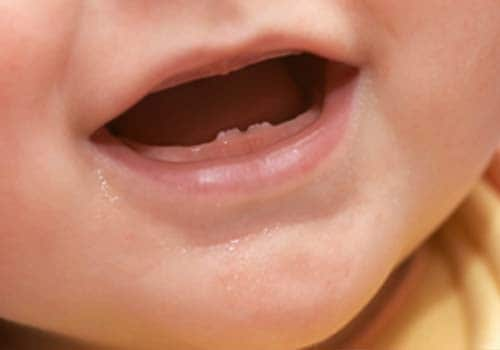-

What is teething?
Teething is the phase during infancy and early childhood when children get their first set of teeth known as primary teeth or milk teeth. Teething normally begins between 6th and the 8th month, but the age at which an infant begins to get teeth may vary. Sometimes infants are born with erupted teeth, but these are often abnormal and fall out.
Tooth eruption occurs periodically until all 20 primary teeth are in place. This normally ends by the 30th month of life. These teeth include 4 incisors, 2 canines, and 4 molars in each jaw for the total of 20. The 2 lower incisors usually erupt first followed by the upper incisors, lower molar, upper molar, lower canine, upper canine, lower lateral molar and, finally, the upper lateral molar. -

What are the signs and symptoms?
The signs of teething are:
- Excess saliva secretion
- Mild discomfort
- Irritability
- Sleeping problems
- Refusing food
- Biting on hard objects
- Low grade fever
The discomfort during teething is due to the pressure exerted on the tissue in the mouth, called the periodontal membrane, as the teeth erupt.
- Excess saliva secretion
-

What should be done?
Some teeth come through without any problem, while in other cases, the gum may be red and sore. A child may be irritable, uncomfortable and may show one or more of the symptoms mentioned above. This discomfort may be eased by a cool object such as a frozen teething ring, an ice-cold wash-cloth, or a cold apple. It can also be helpful to give the child something hard to chew like a teething ring or an unsweetened teething biscuit.
Caring for the child’s teeth:
- Start brushing as soon as teeth appear
- Brush thoroughly twice a day, especially before bed
- Help the child brush until he is able to do it well on his own
- Use tooth paste that is low in fluoride as children tend to swallow it and also encourage them to spit well
- Reduce the child’s sugar intake
- Stop Bottle feeding as early as possible - by 12 to 15 months. Stop night time milk feeding as soon as several teeth appear - as night time (pre-bed time) feeds cause increased tooth decay.
- Start brushing as soon as teeth appear
-

What to avoid?
The gums should not be rubbed or cut to facilitate the eruption of teeth because this can result in infections. Teething powders and aspirin should also be avoided. Oral teething pain relievers that are rubbed on the infant’s gums are not of much help, since the excess saliva in the mouth quickly washes the medicine away.


















